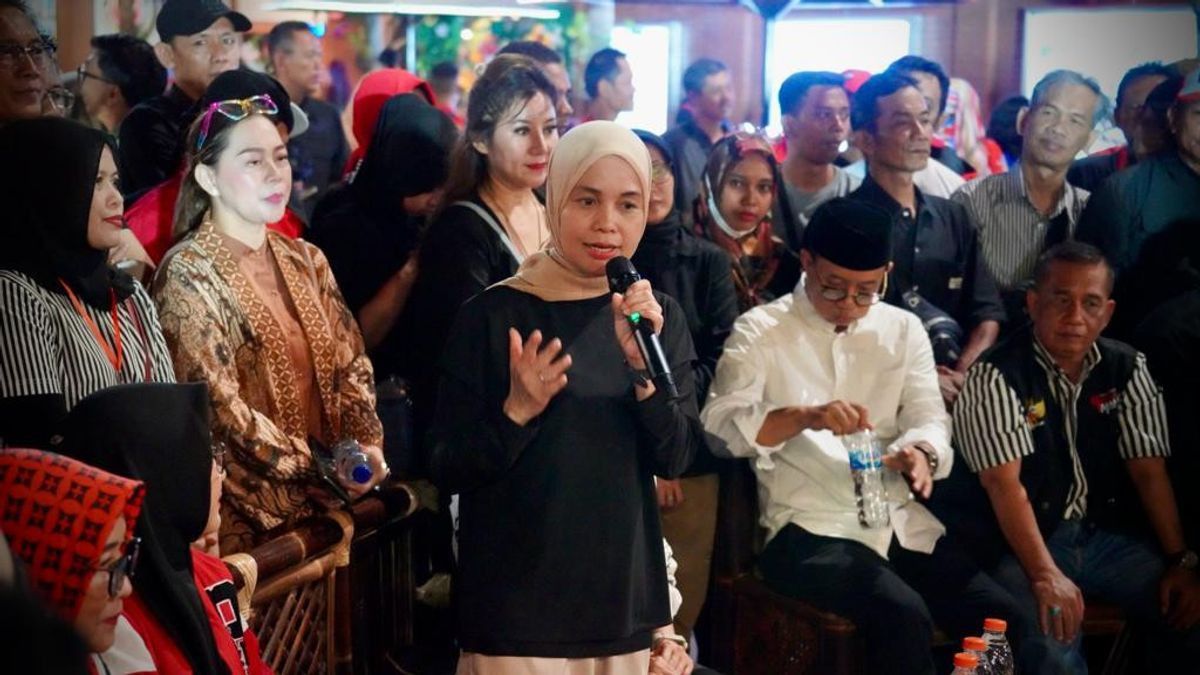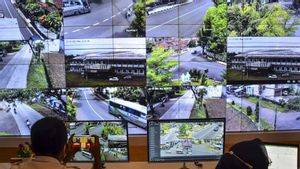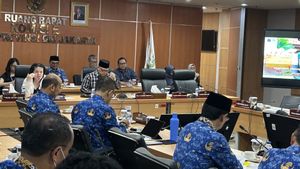YOGYAKARTA Ganjar Pranowo's wife, Siti Atikoh, also conducted political safaris to a number of regions to improve her image or introduce presidential and vice presidential candidate pair number three, Ganjar Pranowo-Mahfud MD to the public.
Most recently, the political safari of Atikoh Ganjar was carried out in Central Java (Central Java) and East Java (East Java) on December 17-20. So, what did Siti Atikoh do during a political safari in Central Java and East Java? Check out the full information below.
There are various places that Siti Atikoh visited during political safari activities in Central Java and East Java, ranging from blusukan to a number of traditional markets to Islamic boarding schools. All of this was done to hear directly the complaints of residents.
During his political safari, Siti Atikoh noted various problems experienced by the community. These problems will later be submitted to the Ganjar-Mahfud Paslon to find a solution.
One of the problems that Atikoh Ganjar found during political safaris was the question of increasing the price of basic necessities, such as rice, onions, and chilies.
There are many complaints, especially mothers, about the price of basic necessities that feel that society is very heavy because if rice increases, other needs automatically increase. Then onion, garlic, it also becomes part of basic commodities at home. Chili and so on. That's the first complaint," said Atikoh Ganjar, quoted by VOI.
In addition, Atikoh admitted that the public complained about access to work and education, especially for people with disabilities.
"Regarding the accessibility of employment, the program (Ganjar-Mahfud) has opened up 17 million jobs, including yesterday's disabled access to their education as well," said Siti Atikoh.
"Hopefully later there will be those who in the past can't do or have not an inclusive system, so hopefully they can work on packages," continued Atikoh.
Atikoh also talked about bullying, domestic violence (KDRT), sexual harassment so that there is a separate platform.
"For example, if it's like domestic violence, yes, or for example sexual harassment, hopefully in the future educational institutions at universities, then in high school, it's also like a place to vent. If this is what they can vent, so that the mental health will be completely maintained," said Atikoh.
Then there is also the program of one puskesmas and one village with health workers and psychologists. Later, victims of sexual harassment are expected from each educational institution to be able to report this.
SEE ALSO:
"If so far there has been a tendency for them to be afraid to report because there is a victim, money, so in the end it becomes a problem for him to be bullied, there is a stigma that may be considered detrimental to schools, detrimental to educational institutions. This also needs to be protected," said Atikoh.
That's information about Atikoh Ganjar's political safari. Get news updates of other options only on VOI.ID.
The English, Chinese, Japanese, Arabic, and French versions are automatically generated by the AI. So there may still be inaccuracies in translating, please always see Indonesian as our main language. (system supported by DigitalSiber.id)
















